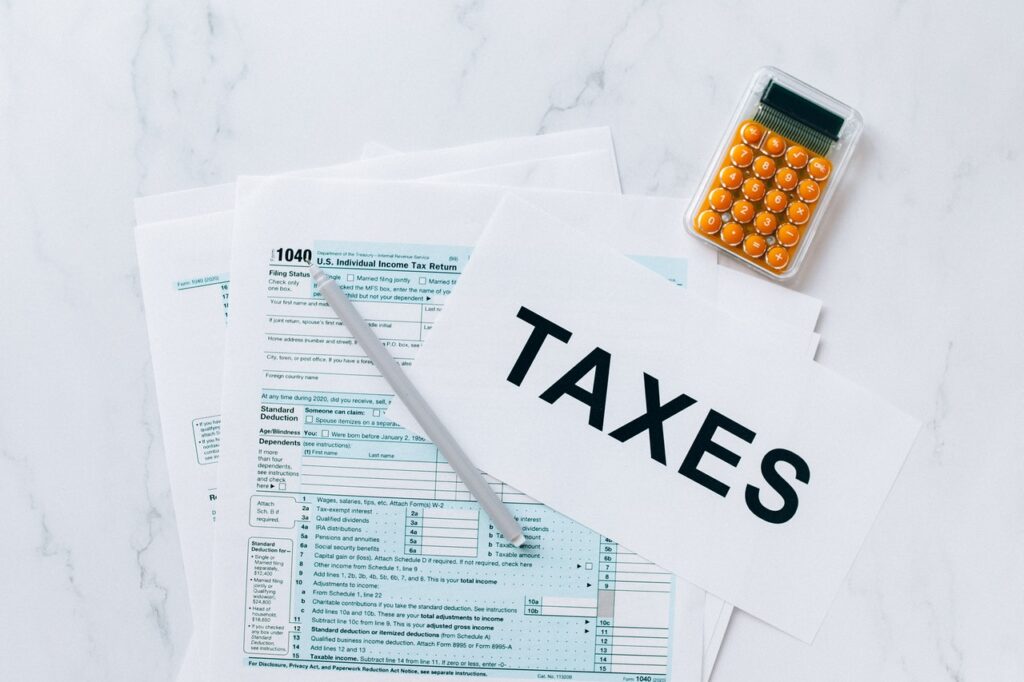If your house sells for more than what you owe on your mortgage and taxes, you may be eligible for Surplus Funds, which can amount to thousands of dollars in some situations.
A surplus fund is a difference between the home’s equity and the price it was sold for if the latter amount exceeds the value of the equity. If a foreclosure sale results in a surplus, you are entitled to the money. In some circumstances, it can be difficult to figure out how to claim your surplus funds.
Read on to learn more about surplus funds and how to claim them.

How Do You Get A Surplus Fund?
When your property is sold in a foreclosure auction, the bidder might purchase your property for more than what you owed to the lender. The difference between the final amount the property is sold for and the loan you borrowed generates mortgage surplus funds.
Foreclosure can be a frustrating process, but the extra income you can earn from the sale might help relieve your burden by paying your rent or putting down a deposit on a new property. The amount you can collect from mortgage surplus money is determined by the amount owed to the lender and the house’s selling price.
Surplus funds are calculated by deducting outstanding mortgage balances from the bidder’s purchase price, which includes any and all fees and penalties incurred by the property. To put it another way, surplus funds are the difference between the selling price and the balance due on the mortgage plus costs.
In California any extra funds must go to the most recent owner of the repossessed property, according to the law. If another party has a claim to the property, such as a second mortgage, the surplus funds will be utilized to pay down the debt, and the remaining funds will be claimed once secured liens have been paid off.
If you need assistance recovering surplus funds from a foreclosed property, contact a professional law firm that specializes in recovering funds from foreclosed properties.
Who Can Get Surplus Funds After Foreclosure?
In general, the first mortgage takes precedence, followed by any second/third mortgages, and finally any liens placed on the property by contractors or other trades, as well as any court judgments. The homeowner is ultimately at the bottom of the priority list.
After all interested parties have submitted motions, the court will evaluate them and, if necessary, parties will be invited to file responses or appear at a hearing. The court will next determine who has priority for the funds and will award the funds to the party who is “first-in-line” for the funds. Naturally, if that party is the previous owner, they will receive all leftover surplus funds.
How To Recover Surplus Funds?
A notice will be given to parties who may be interested in foreclosure proceeds once the property is sold at a foreclosure auction. The necessary documentation and legal procedures for claiming surplus funds, will be included.

Once the property is sold in a foreclosure auction, a notice will be sent to anyone who might be interested in the foreclosure proceeds. The relevant papers and legal processes for claiming surplus funds will be included.
After that, a notice will be mailed to the property’s interested parties. The notice will be sent via certified mail, enclosed in a big envelope with all essential documentation. It will be followed by paperwork pertaining to the legal aspects of a foreclosure sale.
A Notice of Deposit of Surplus Funds will also be included in the mail, which details the amount of money left over and how anyone with a claim to the money should contact the court.
How To Claim Surplus Funds From Foreclosure?
If you believe your property has a mortgage surplus as a result of a foreclosure sale, you can contact the court in judicial foreclosure states that handles surplus funds disbursement or the trustee nominated to oversee the foreclosure sale in nonjudicial foreclosure states, to determine if you are entitled to any of the surplus funds.
Whether it’s a judicial or non-judicial foreclosure, the former property owner must be notified if they have any surplus funds. If you are due a refund, however, you should inquire about how to file a surplus fund claim, as each state has its unique set of regulations.
After receiving the Notice of Deposit of Surplus Funds, submit a motion to distribute the funds with the court of jurisdiction. It’s a simple concept that establishes that the person filing the claim is the owner of the property or has a lien on the property, and that they have precedence over anybody else seeking to collect the surplus funds.
Are Surplus Funds Taxable?

No, you are not required to pay tax because the loss of the property due to foreclosure auction is actually a loss to you because your basis was greater than the acquisition cost. Your mortgage was not higher than your basis because there was a surplus, thus there was no income there either.
Surplus Fund Scam
Con artists and businesses hoping to profit from your misery have started approaching homeowners after the sheriff’s sale, promising to apply for Surplus Funds on your behalf. Many will write you letters or even knock on your door to offer aid.
These con artists and/or companies charge exorbitant fees to apply for this money on your behalf, often up to 75% of your surplus amount. The truth is that you can apply for Surplus Funds on your own for less than $100 and, in many cases, without the help of an attorney.
Here is how con artists scam possible surplus funds claimants:
- charging a fee that can be up to 75% of the total surplus fund;
- writing a fee in the contract with the homeowner that is higher than the fee verbally promised;
- pressuring the homeowner to sign away his/her rights to the surplus funds through a quit claim deed;
- forging the homeowner’s name on a surplus funds application and then keeping the surplus funds.
As a matter of fact, claiming surplus funds is not illegal. In the State of California, all extra funds after a foreclosure go to the former owner, according to state law. This little fact can make all the difference in the world when it comes to what happens after a California foreclosure. Residents of California can obtain these funds with the assistance of a real estate attorney.
Conclusion
If your house sells for more than what you owe on your mortgage and taxes, it will generate excess money that is called mortgage surplus funds. It can amount to thousands of dollars in some cases.
Surplus funds are computed by calculating the difference between the mortgage balance and the bidder’s purchase price. In the State of California, the surplus funds is given to the most recent owner of the repossessed property.
To recover these surplus funds, a notice will be given to all interested parties in foreclosure proceeds. It will include necessary papers and legal process for claiming surplus funds.
But always be aware of potential surplus funds scam. There are con artists and businesses trying to make a profit from your surplus funds. They usually promise owners to recover the funds on their behalf and put pressure on them to sign an agreement.
As you go through the foreclosure process, double-check and understand your papers to see if you’re eligible for surplus payments. This is money to which you have a legal claim.

Comments are closed